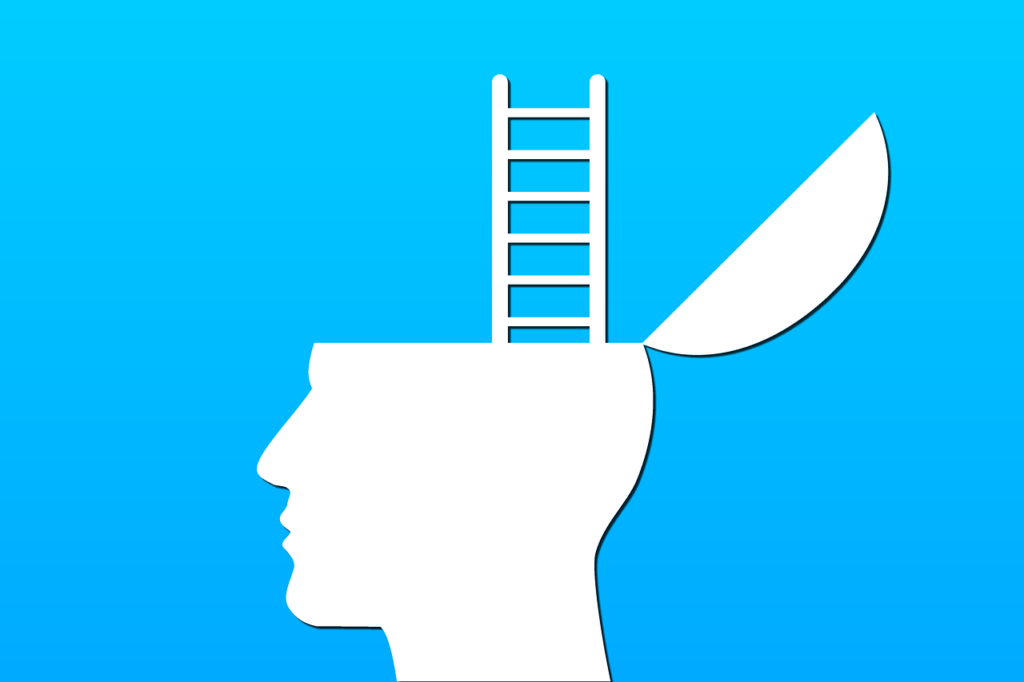
Have you ever heard the phrase “mindset is everything”? But what exactly is mindset and how does it impact our daily lives? In this comprehensive guide, we will delve into the concept of mindset, exploring what it is, how it affects us, and most importantly, how we can change our mindset to achieve the attitude we desire.
Understanding the Basics of Mindset
Mindset encompasses the collection of beliefs and attitudes that determine how we interpret and respond to our environment and challenges. It acts as a lens through which we view our experiences, shaping our reactions and the paths we choose to follow. The foundation of our mindset is built from a complex mixture of factors including the lessons we learn in our youth, the triumphs and defeats we experience, and the influence of those we consider our peers and mentors. This intricate web of influences crafts our perception of not only ourselves but also our capabilities and our place within the wider world. By understanding that our mindset is not a fixed entity, but rather a malleable set of beliefs, we unlock the potential for significant personal growth and change. Recognizing the mutable nature of our mindset is the first step in the journey towards adopting a more adaptive and proactive approach to life. This realization paves the way for transformation, allowing us to embrace challenges with a sense of purpose and resilience, rather than viewing them as insurmountable obstacles. Through this lens, we begin to appreciate the pivotal role our mindset plays in navigating the complexities of life, underscoring the importance of nurturing a healthy, growth-oriented perspective.
The Power of a Growth Mindset vs. a Fixed Mindset
At the heart of our understanding of mindset lies the distinction between two fundamental orientations: the growth mindset and the fixed mindset. Individuals who nurture a growth mindset believe in the potential for their skills and intelligence to expand through effort, persistence, and learning. They view failure not as a reflection of their inherent worth but as a valuable stepping stone toward mastery. This perspective fosters resilience, encouraging the pursuit of challenges as avenues for development and learning. Conversely, the fixed mindset is characterized by the belief that one’s abilities are innate and immutable. This view can lead to a reluctance to engage in tasks that might expose inadequacies, resulting in missed opportunities for growth and self-improvement. The contrast between these mindsets illuminates the significant impact our beliefs about ourselves can have on our behavior and performance. Embracing a growth mindset empowers individuals to approach life with a sense of curiosity and a willingness to embrace challenges, while a fixed mindset can constrain potential and hinder personal development. Understanding this dynamic offers a pathway toward transforming how we approach our goals, challenges, and interactions with others, underscoring the profound influence of our mindset on the trajectory of our lives.
Identifying Your Current Mindset
Embarking on the journey of transforming your mindset begins with a crucial step: recognizing your prevailing mindset. This self-reflection phase is fundamental in unveiling the nature of your attitudes towards challenges, failures, and personal abilities. Consider the moments when you’re faced with a difficult situation – do you find yourself motivated by the prospect of growth, or deterred by the fear of not being competent enough? Your reaction to such scenarios can provide insightful clues into whether your mindset leans towards the fixed or growth spectrum. Additionally, analyze your internal dialogue when encountering obstacles. Is it filled with self-doubt and resignation, or do you encourage yourself to persevere and learn from the experience? This introspection can be enlightening, revealing patterns that dictate your approach to life’s hurdles. It’s also beneficial to assess how you view feedback and criticism. Do you perceive them as personal attacks or as opportunities for enhancement and self-discovery? Understanding these aspects of your behavior and thoughts is instrumental in pinpointing your current mindset. This self-awareness serves as the foundation upon which you can build your journey towards a mindset that aligns more closely with your aspirations and values, setting the stage for meaningful personal transformation.
Strategies for Shifting Your Mindset
Transforming from a fixed to a growth mindset requires intention and action. Start by recognizing and challenging your limiting beliefs. Whenever a thought arises that suggests you can’t improve or change, question its validity and replace it with a belief in your ability to grow. Engage in reflective journaling to process your thoughts and emotions, particularly those that revolve around failure and success. This practice can illuminate patterns in your thinking that you may want to shift.
Embrace the concept of “yet” by adding it to statements that reflect current limitations. For instance, “I can’t do this” becomes “I can’t do this yet.” This simple linguistic tweak can help reinforce the idea that abilities are not fixed but can be developed over time.
Setting small, achievable goals is another effective strategy. These goals should challenge you slightly but be attainable with effort. Achieving these goals can build confidence and reinforce a growth mindset, as you’ll see firsthand that effort leads to progress.
Lastly, seek feedback and view it as a gift. Constructive criticism is invaluable for learning and growth. Approach it with curiosity rather than defensiveness, and use it as a tool to identify areas for improvement and to strategize on how to develop those areas. By adopting these strategies, you can facilitate a mindset shift that supports lifelong learning and adaptability.
The Role of Mindset in Overcoming Challenges
Adopting a growth mindset transforms the way we approach life’s inevitable challenges. Instead of perceiving difficulties as permanent roadblocks, those with a growth mindset view them as valuable opportunities to enhance their skills, knowledge, and resilience. This proactive stance enables individuals to confront adversity with confidence and determination, seeing each obstacle as a chance to evolve and strengthen. Key to this approach is the understanding that effort and perseverance are essential components in turning setbacks into stepping stones towards success. By maintaining a focus on learning and improvement, even in the face of failure, we equip ourselves with the tools needed to navigate challenges more effectively and emerge stronger on the other side. Cultivating such a mindset empowers us to take risks, experiment, and push beyond our comfort zones, all of which are crucial for personal growth and achievement.
How to Cultivate a Positive Mindset Every Day
To nurture a positive mindset daily, it’s crucial to engage in practices that uplift your spirits and reinforce optimism. Start each day with a positive affirmation or a mantra that resonates with your goals and intentions. This simple act can set a positive tone for the day ahead, helping you to maintain a hopeful outlook even in the face of challenges. Additionally, incorporating mindfulness exercises into your routine, such as meditation or deep breathing, can significantly reduce stress and promote a sense of calm and clarity.
Make a habit of recognizing and savoring small victories and joyous moments throughout your day. Whether it’s a successful work project, a kind gesture from a friend, or simply a moment of tranquility, acknowledging these experiences can bolster your mood and outlook. Engaging with your community or volunteering can also enrich your life with purpose and connection, further enhancing your positive mindset.
It’s equally important to be mindful of your media consumption and the company you keep. Surround yourself with supportive and optimistic individuals who encourage your growth and happiness. Limit exposure to negative news and social media that may dampen your spirits. Instead, seek out inspirational content that motivates you to pursue your aspirations and maintain a hopeful perspective.
Lastly, adopt a flexible approach to setbacks, viewing them as learning opportunities rather than failures. This shift in perception can help you navigate life’s ups and downs more smoothly, fostering resilience and a sustained positive mindset. By integrating these practices into your daily life, you can gradually cultivate an outlook that elevates your overall well-being and enables you to face each day with renewed optimism and vigor.
The Impact of Mindset on Relationships and Communication
A growth-oriented mindset can significantly enhance how we engage in relationships and communicate with others. With an emphasis on empathy, understanding, and the belief in mutual growth, individuals can foster deeper connections and more meaningful interactions. When we view conversations as opportunities to learn and grow together, rather than just ways to assert our own viewpoints, we open the door to more collaborative and supportive dynamics. This approach encourages openness, where feedback is not seen as criticism but as constructive input that can lead to shared improvement and success. Moreover, maintaining a positive outlook can help diffuse tension and resolve conflicts more effectively, as it promotes a focus on solutions rather than problems. Embracing this mindset in our interactions not only strengthens our personal relationships but also creates a more positive atmosphere in professional settings, leading to better teamwork and collaboration. Cultivating these qualities allows us to build a network of support, characterized by trust and mutual respect, which is invaluable in navigating the challenges of both personal and professional life.
